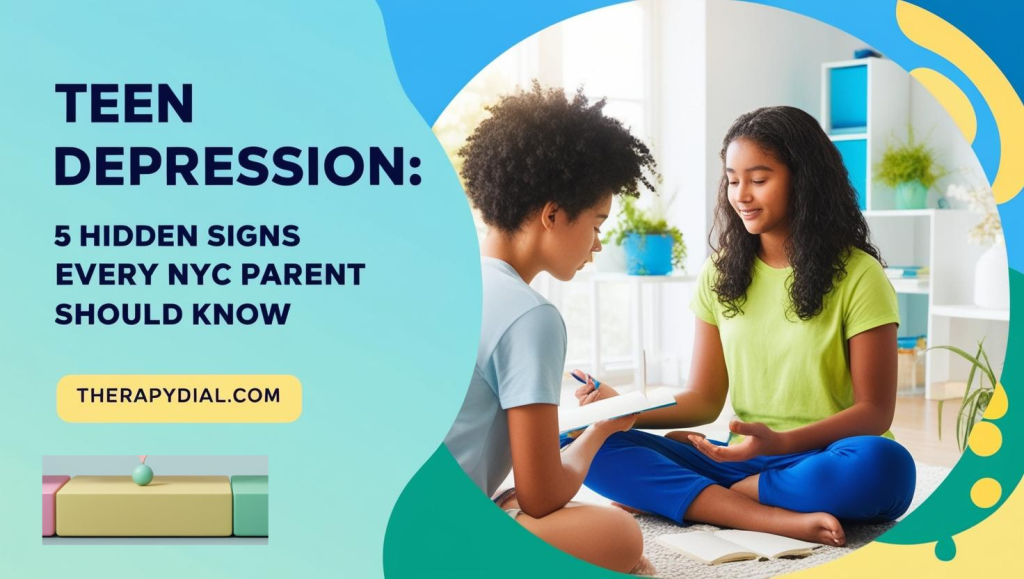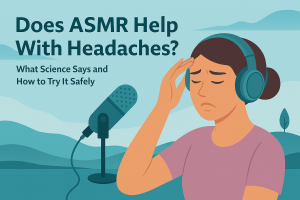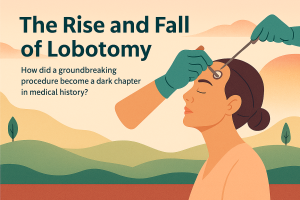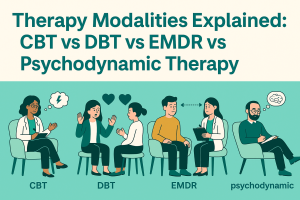Teenagers today face more pressure than ever, and nowhere is that more evident than in New York City. Amid the fast pace, sky-high expectations, and constant comparison, many teens silently struggle with depression.
The scary part? Most parents miss the warning signs. This guide is here to help you spot five often-overlooked red flags before it’s too late.
These aren’t your typical textbook symptoms—these are the quiet cries for help masked by busyness, independence, or even sarcasm.
Understanding Teen Depression in NYC
The Urban Pressure Cooker: NYC’s Unique Challenges
Living in NYC is a dream for many—but for teens, it can be a mental health minefield. They’re navigating academic demands from top-ranked schools, competitive extracurriculars, and a social scene that’s as intense as Wall Street trading.
Add in the noise, overcrowding, and lack of personal space, and it’s no surprise that depression rates among NYC teens are climbing.
According to the NYC Department of Health, nearly one in five high school students has seriously considered suicide. That’s not just alarming—it’s a crisis. Many of these kids feel pressure to succeed at all costs, often hiding their emotions behind achievements or fake smiles.
How City Living Affects Teen Mental Health
Unlike suburban or rural areas, NYC offers very little breathing room—literally and emotionally. The constant hustle can lead teens to suppress their feelings to keep up appearances.
Many NYC teens deal with long commutes, overcrowded classrooms, and intense peer competition. There’s little time for downtime, and the few moments they get are often filled with digital overload from social media.
This unique environment makes it easier for signs of depression to slip under the radar. What seems like a “normal” NYC teen mood swing might actually be a deeper emotional issue. Parents need to tune in closely—and consistently.
Why Teen Depression Often Goes Unnoticed
Emotional vs. Behavioral Signs
Depression doesn’t always look like sadness. Teens might not cry or withdraw entirely. Instead, they may lash out, act defiant, or seem more “moody” than usual. These behavioral shifts are easy to misinterpret as typical teenage angst.
What makes things trickier is that many teens are skilled at hiding their feelings. They wear emotional masks—smiling at dinner, joking with friends, all while feeling like they’re drowning inside. Parents often chalk this up to hormones or “just a phase,” but that mindset can delay crucial intervention.
The Stigma Around Mental Health in Teens
In many households, especially immigrant or high-achievement families, there’s still a stigma around mental health. Admitting to depression is seen as weakness, or worse, failure. This cultural pressure can push teens into silence. They fear disappointing their parents or being judged, so they bottle everything up.
This is why it’s essential to normalize conversations about mental health at home. Show empathy. Listen without trying to “fix” everything. Let them know it’s okay not to be okay.
Hidden Sign #1: Sudden Academic Decline
When Smart Kids Start Slipping
If your straight-A student suddenly starts failing math or skipping homework, don’t just assume it’s laziness. A sharp drop in academic performance is often one of the earliest signs of depression. The brain fog, lack of motivation, and exhaustion make it hard to focus or care about grades.
This change can be subtle. Maybe they go from A’s to B’s, or they start procrastinating more than usual. They might seem indifferent to things they once cared deeply about—like college applications or favorite classes.
Depression affects executive function—planning, organizing, remembering—which are critical for school success. And in NYC, where academic pressure is intense, failing to keep up can worsen their emotional state, creating a vicious cycle.
Real-life Examples from NYC Schools
Take Ella, a 16-year-old junior at a top NYC magnet school. Her parents were shocked when teachers reported she hadn’t turned in assignments for weeks. They assumed she was overwhelmed with AP courses, but the real issue? She was battling depression and didn’t know how to ask for help.
It’s not rare. Teachers across NYC public schools report seeing academically gifted students crash emotionally under pressure. The school’s guidance counselor may be the first adult to spot the change—but parents must take that warning seriously, not dismiss it as teen drama.
Hidden Sign #2: Excessive Isolation
More Than Just “Alone Time”
Yes, teens like their space—but there’s a difference between healthy solitude and emotional isolation. If your child is spending hours locked in their room, avoiding meals, or skipping time with friends, it could be a red flag.
Depressed teens often retreat from the world. It’s not because they’re being rude—it’s because everything feels overwhelming. Even small talk can feel like a chore. Isolation becomes a coping mechanism, a way to avoid having to pretend they’re okay.
Pay attention to social habits. Are they canceling plans frequently? Are they pulling away from best friends? Don’t just shrug it off—check in.
NYC’s Social Paradox: Lonely in a Crowd
NYC is a city of 8 million, yet many teens feel utterly alone. The pressure to appear perfect on social media, combined with the constant comparison culture, can make them feel like everyone else has it figured out—except them.
This can lead to a phenomenon psychologists call “crowded loneliness.” Even surrounded by classmates or Instagram followers, they feel unseen, unheard, and unimportant.
Helping your teen reconnect—with family, trusted adults, or even a pet—can make a massive difference.
Hidden Sign #3: Changes in Sleep Habits
The Red Flag of Sleep Disruption
Sleep is a critical window into a teen’s mental health. One of the most consistent yet overlooked signs of depression is a change in sleep patterns. Some teens begin sleeping too much, using sleep as an escape from their overwhelming emotions. Others suffer from insomnia, tossing and turning for hours with anxious thoughts swirling in their heads.
In NYC, where school days start early and extracurriculars push bedtime later, it’s easy to dismiss fatigue as part of the grind. But if your teen starts sleeping excessively on weekends, napping after school, or struggling to fall asleep despite exhaustion, it’s worth a closer look.
Sleep disruption doesn’t happen in a vacuum. It’s often accompanied by changes in appetite, irritability, or academic issues. Some teens will even tell you they can’t sleep—others may just withdraw more, become more irritable, or seem spaced out during the day.
From Over-sleeping to Insomnia
Parents often overlook sleep changes because they seem contradictory. How can sleeping more and less both be signs of depression? Simple: depression disrupts the brain’s natural rhythms. Some teens may feel drained all the time and crash early. Others lie awake at night, anxious about school, friends, or the future.
One mother from Queens shared how her 15-year-old son, once a morning person, started struggling to get out of bed. He claimed he was “just tired from school,” but when weekends rolled around, he would sleep past noon and avoid family time. Eventually, he admitted he felt sad all the time but didn’t want to worry anyone.
That’s why it’s important to notice patterns. Track how often they’re sleeping in, staying up late, or napping. Even subtle shifts can signal a bigger emotional battle.
Hidden Sign #4: Increased Sensitivity to Criticism
Emotional Fragility in Teens
Teenagers are known for being dramatic, but when your teen starts reacting to even mild suggestions with tears, anger, or withdrawal, it could be more than just hormones. Increased sensitivity to criticism is a classic but lesser-known symptom of depression.
When teens are struggling internally, even the smallest correction can feel like a personal attack. That “you forgot to do your chores” can spiral into “I’m such a failure” in their minds. Depression distorts perception, making neutral feedback sound like judgment.
This emotional fragility is often misread as defiance or attitude. In reality, your teen might be holding on by a thread, and your words—however well-intentioned—feel like salt on a wound.
NYC’s Competitive Culture and Its Toll
Living in New York City means teens are surrounded by high-achievers. Whether it’s academic success, musical talent, or athletic performance, there’s always someone better, faster, smarter. This constant comparison creates an environment where criticism, even if constructive, feels like another blow to self-worth.
Many NYC teens internalize this pressure. A missed homework assignment or a dropped grade becomes a symbol of failure. If your teen seems to spiral after small setbacks or avoids activities they once loved for fear of not being “good enough,” it’s time to look deeper.
In one case, a Brooklyn teen who was once a competitive violinist gave up her music altogether. When her teacher gave her a low score during a rehearsal, she broke down and said she couldn’t handle “never being enough.” Her parents thought she was overreacting—until therapy revealed she had been silently dealing with depression for over a year.
Hidden Sign #5: Physical Complaints Without Medical Cause
Depression Disguised as Illness
Here’s a surprising fact: depression doesn’t always show up as emotional distress—it often shows up as physical symptoms. Headaches, stomachaches, chronic fatigue, muscle pain—these are all ways depression can manifest in teens.
This can be especially confusing for parents. You may take your child to the pediatrician again and again, only to be told “everything looks fine.” That’s because the root issue isn’t physical—it’s psychological.
These physical symptoms are real. Your teen isn’t faking. Their brain is in distress, and the body responds by mimicking illness. Unfortunately, without the right context, many parents and doctors miss the connection between these symptoms and mental health.
Frequent Visits to the School Nurse or Pediatrician
Does your teen often complain about not feeling well to get out of school? Are they constantly visiting the school nurse with no clear diagnosis? These might be their way of saying, “I’m not okay,” without actually saying it.
In NYC schools, nurses often report seeing teens repeatedly for vague symptoms—nausea, headaches, fatigue. Many of these students are later found to be struggling with emotional stress or undiagnosed depression.
A Manhattan pediatrician recently shared that nearly 30% of her teen patients with recurring “mystery symptoms” turned out to have underlying mental health issues. Once they received the proper support, the physical complaints drastically reduced.
As a parent, trust your instincts. If medical tests keep coming back normal, consider a mental health evaluation. You might be saving your child from years of silent suffering.
What NYC Parents Can Do
Open Communication Without Judgment
So, you suspect something might be wrong. Now what? The best first step is creating a safe, judgment-free space for your teen to open up. This means putting aside lectures, advice, or comparisons—and simply listening.
Start by asking open-ended questions:
-
“How have you been feeling lately?”
-
“Is there anything on your mind that you haven’t shared?”
-
“What’s been hard for you recently?”
Let them know you’re a safe place, not a judge. Avoid minimizing their feelings. Don’t say things like “You have nothing to be sad about,” or “You’re just being dramatic.” These shut down communication and increase isolation.
Also, watch your tone. NYC families are often fast-paced and blunt (hey, it’s how we roll!), but teens need softness. Patience and warmth go a long way.
Creating a Safe Space at Home
Home should feel like a refuge, not another source of stress. That means allowing downtime, honoring privacy, and creating moments for connection—whether that’s over dinner, a walk through Central Park, or a quiet ride on the subway.
Sometimes, it’s less about big talks and more about presence. Be around. Be available. Don’t pressure them to talk, but let them know the door is always open.
If you’re unsure how to approach the topic, consider using books, movies, or online articles as conversation starters. Sometimes it’s easier for teens to talk about fictional characters than themselves.
When to Seek Professional Help
NYC-Based Therapy Resources for Teens
If signs of depression persist or worsen, professional help is crucial. Fortunately, NYC has a wide range of mental health resources for teens. From community centers to school-based therapy, there are options at every price point.
Here are some reputable places to start:
-
NYC Well – A 24/7 hotline and text/chat service with free mental health support
-
The Child Mind Institute – Specializes in child and teen psychology with NYC offices
-
The Jewish Board – Offers affordable mental health services across NYC boroughs
If your teen is in crisis or showing signs of self-harm, don’t wait. Contact a therapist, call a crisis line, or head to the nearest emergency room. Better to overreact than underreact.
How to Approach Your Teen About Counseling
Teens may resist therapy at first—it’s new, unfamiliar, and may feel embarrassing. Frame it not as a punishment or diagnosis, but as a tool. Just like you’d see a doctor for a broken bone, you see a therapist for emotional pain.
You might say: “I love you and I’m worried about you. Talking to someone can really help. Let’s go together and see how it feels.”
Normalize the process. Mention celebrities or influencers they admire who have spoken openly about mental health—many NYC teens look up to figures like Lady Gaga or Logic, both advocates for mental wellness.
School Involvement and Community Support
Talking to Teachers and School Counselors
One of your best allies in identifying and supporting a depressed teen is the school staff. Teachers, guidance counselors, and school psychologists are on the front lines. They often notice shifts in behavior, grades, attendance, or social dynamics before parents do.
Start by setting up a private meeting with your teen’s homeroom teacher or guidance counselor. Ask open-ended questions like:
-
“Have you noticed any changes in my child’s behavior?”
-
“Are they participating in class as usual?”
-
“Have they seemed withdrawn or irritable?”
Remember, this isn’t about accusing your child or expecting teachers to solve everything—it’s about building a support team. Schools like those in the NYC DOE system often offer on-site mental health services or can refer you to local organizations that specialize in teen counseling.
Also, encourage your teen to connect with a trusted adult at school. Even just having one person who “gets it” can dramatically ease feelings of isolation.
Leveraging Local Youth Programs
NYC is full of programs that support youth mental health, creativity, and community involvement. These can serve as therapeutic outlets for teens dealing with depression. Whether it’s art therapy, after-school sports, or leadership groups, engaging in something beyond academics often rekindles confidence and self-worth.
Here are a few great places to check out:
-
The Door NYC – Offers free services for youth including counseling, education, and arts programs
-
YMCA of Greater New York – Provides community spaces and mental wellness activities
-
NYC Parks Teen Programs – Low-cost opportunities to stay active and social
Getting involved in the community gives teens a sense of purpose, helps them build new relationships, and encourages positive coping strategies outside of school and home environments.
Tech and Social Media’s Role in Teen Depression
The Double-Edged Sword of Online Life
Social media is the new teenage playground—and battleground. While it can connect teens with friends and self-expression, it can also fuel anxiety, comparison, and emotional burnout. For NYC teens already under pressure to “succeed,” curated Instagram posts or TikToks showing perfect lives can deepen feelings of inadequacy.
Apps like Snapchat and Instagram aren’t inherently bad, but excessive use—especially without real-world connection—can warp a teen’s sense of self. They may obsess over likes, fear missing out, or experience cyberbullying, all of which can exacerbate depression.
Research from the American Academy of Pediatrics shows a strong link between screen time and mental health issues in adolescents. So while you don’t need to ban phones altogether, setting healthy limits is key.
NYC Teens and Digital Overwhelm
Teens in New York already live in sensory overload. Add non-stop notifications, group chats, and influencer drama to that—and it’s no wonder they feel mentally fried. The pressure to be “on” 24/7 digitally can lead to exhaustion and emotional disconnection.
Encourage tech-free zones at home. Create boundaries like no phones during meals or after 10 p.m. Suggest screen alternatives like journaling, reading, or even just a walk around the block. And more importantly, model healthy tech habits yourself.
Sometimes, it’s not about removing social media—but reshaping how it’s used. Ask your teen to curate their feed: follow positive accounts, mute toxic ones, and take breaks when needed.
Building Emotional Resilience in NYC Teens
Coping Skills and Positive Outlets
You can’t prevent every challenge your teen will face—but you can help them develop resilience. This means teaching them how to bounce back from setbacks, regulate emotions, and cope with stress in healthy ways.
Start by helping them identify what helps them feel better:
-
Is it drawing or writing?
-
Does movement like dancing or biking calm them down?
-
Do they recharge by spending time with pets, listening to music, or talking to a friend?
Encourage those outlets. Build them into their weekly routine. Make emotional expression a norm in your house—talk about your own stress and how you manage it. Show them it’s okay to feel overwhelmed sometimes.
Mindfulness, deep breathing, and physical activity have all been shown to reduce symptoms of depression in teens. NYC offers yoga classes, meditation centers, and nature walks—even in the middle of the city.
Try The Mindful Teen resources or explore NYC Parks meditation events as a family.
Encouraging Healthy Peer Relationships
Teens rely heavily on peers for validation and belonging. Help them cultivate relationships that uplift, rather than drain, them. This might mean steering away from toxic friends and toward groups that share their interests and values.
Teach your teen what healthy friendships look like:
-
Mutual respect
-
Emotional safety
-
Honest communication
-
No pressure to conform
Encourage them to find “their people,” whether that’s in a club, online gaming community, or at a youth center. Positive peer bonds are one of the strongest buffers against depression.
Real Stories: NYC Parents Who Noticed the Signs
From Silence to Support
Real-life experiences from other parents can be eye-opening. Take Carmen, a single mother from the Bronx. She thought her 14-year-old daughter was just “acting out” when she started skipping class and sleeping late. It wasn’t until a school counselor reached out that Carmen realized her daughter was battling depression.
By working with a local therapist, involving extended family, and making small daily check-ins a routine, Carmen turned things around. Her daughter is now back in school and thriving in a theater club.
Or Marcus, a dad from Queens, whose son—a straight-A student—suddenly dropped off academically. At first, he was angry. But when he finally sat down to talk with his son, he learned he had been feeling lost and overwhelmed by the pressure to succeed. Counseling helped the whole family develop new ways to communicate.
Lessons Learned and Shared Advice
What do these parents have in common? They listened. They acted. And most importantly, they didn’t wait for a crisis to take mental health seriously.
Their advice to other NYC parents:
-
Don’t dismiss small changes—they might be big signals.
-
Trust your gut. You know your child.
-
Don’t be afraid to ask tough questions, even if it’s awkward.
-
Seek help early. It’s not weakness—it’s wisdom.
Hearing stories from others not only reduces the stigma but reminds you that you’re not alone—and neither is your teen.
Conclusion
Teen depression is a silent storm—and in a city as loud and chaotic as NYC, it’s easy for that storm to go unnoticed. But as a parent, you’re not powerless.
By learning to spot the subtle signs—academic drops, social withdrawal, sleep shifts, emotional hypersensitivity, and unexplained physical complaints—you can intervene early and compassionately.
Remember, your teen may not always say what they’re feeling—but they’ll always show it if you know where to look. Stay observant, stay involved, and don’t underestimate the power of simply asking, “Are you okay?”
Support, love, and early action can truly change—and even save—a life.
FAQs
How do I know if it’s just a phase or real depression?
Look for consistency and impact. If your teen’s mood, behavior, or functioning has changed significantly and for more than two weeks, it may be more than a phase.
Are there free counseling options in NYC?
Yes. NYC Well offers free support. Many schools also provide on-site counselors, and organizations like The Door offer services at no cost.
How should I talk to my teen about depression?
Be gentle, non-judgmental, and open. Start with observations (“I’ve noticed you’ve been really tired lately…”) and offer support (“I’m here for you, no matter what”).
Can school performance really reflect mental health?
Absolutely. Academic changes—especially sudden drops—can signal mental health issues like depression or anxiety. They’re often one of the first external signs.
What role do friends play in teen depression?
Friends can either buffer or worsen depression. Healthy friendships provide support and a sense of belonging. Toxic ones can deepen feelings of worthlessness or isolation.




